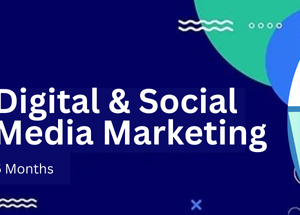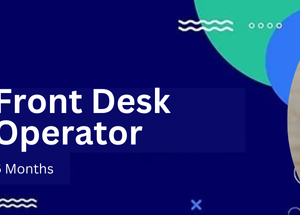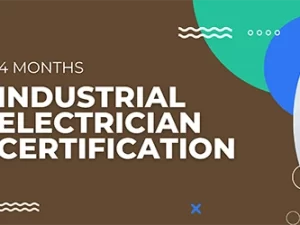Ecommerce by Educator Computer Institute & College
- Description
- Curriculum
- FAQ
- Notice
- Reviews
Ecommerce, short for electronic commerce, refers to the buying and selling of goods and services over the internet. It involves the entire process of online transactions, including browsing and selecting products, making payments, and receiving deliveries. Ecommerce has revolutionized the way businesses operate and has provided consumers with convenient access to a wide range of products and services from anywhere in the world.
Marketplaces, in the context of ecommerce, are online platforms where multiple sellers can offer their products or services to a large number of potential buyers. These platforms act as intermediaries, facilitating transactions between buyers and sellers. Marketplaces can be general, covering a wide range of products and services, or they can be specialized, focusing on specific industries or niches.
In a marketplace, sellers typically create individual accounts and list their products or services, including descriptions, prices, and other relevant information. Buyers can then browse through the offerings, compare prices and features, and make purchases directly through the marketplace platform. Marketplaces often provide additional features such as customer reviews, ratings, and secure payment systems to enhance the buying experience.
Popular examples of ecommerce marketplaces include Amazon, eBay, Alibaba, and Etsy. These platforms have gained immense popularity due to their vast product selections, competitive prices, and trusted reputations. Marketplaces offer benefits to both buyers and sellers, providing a convenient and efficient way to connect and transact in the digital marketplace.
-
31. Private LabelPreview 45This lesson is locked because you haven't completed the previous one yet. Finish the previous lesson to unlock this one.
Private label refers to a business model where a seller sources generic or unbranded products from manufacturers, customizes them under their own brand, and sells them on Amazon. Here are some key points defining private label:
-
42. WholesalePreview 45This lesson is locked because you haven't completed the previous one yet. Finish the previous lesson to unlock this one.
Wholesale businesses involve buying branded products in bulk from manufacturers or distributors at a discount and then selling them on Amazon at a higher price.
One of the biggest differences between wholesale and private label businesses is the level of risk involved. The risk is relatively lower with a wholesale business because the product is already known. With a private label business, you’re taking on the risk of product research, manufacturing, and marketing your own products.
-
53. DropshippingText lessonThis lesson is locked because you haven't completed the previous one yet. Finish the previous lesson to unlock this one.
Disclaimer
— 01 June 2023
- The courses may be revised time to time as a result of continuous review to bring them at par with courses being taught at top-class national and foreign universities. While reviewing the courses, needs of local industry and job market are also given full consideration.
- The Institute reserves the right to change fee structure from time to time.

Institute Timing
| Monday | 11:00 am - 9.00 pm |
| Tuesday | 11:00 am - 9.00 pm |
| Wednesday | 11:00 am - 9.00 pm |
| Thursday | 11:00 am - 9.00 pm |
| Friday | 11:00 am - 9.00 pm |
| Saturday | 11:00 am - 9.00 pm |
| Sunday | Closed |










